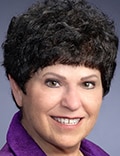The professional association representing nurse anesthetists is facing backlash after changing its name from the American Association of Nurse Anesthetists to the American Association of Nurse Anesthesiology (AANA). Critics say the move is misleading to patients and misrepresents nurse anesthetists’ training.
The announcement last Saturday was part of a year-long branding effort focused on advancing the science of nurse anesthesiology and supporting certified registered nurse anesthetists (CRNAs), the AANA stated.
“When anesthesia is administered by a nurse, it is recognized as a practice of nursing,” said AANA President Steven Sertich, CRNA, MAE, JD, Esq, in a statement. “Our new name tells the story of who we are, what we do, and what we stand for.”
The American Society of Anesthesiologists (ASA) swiftly issued a response condemning the name change. “Throughout the medical and nursing communities and certifying boards, ‘anesthesiology’ and ‘anesthesiologist’ are accepted as the terms for a medical specialty and a medical physician,” they said in a statement. They call the name change “medical title misappropriation” that misrepresents the education and training of CRNAs.

Dr Beverly Philip
“I highly respect nurse anesthetists; it’s a terrific profession that we work with well, most of the time,” ASA president Beverly Philip, MD, told Medscape Medical News. “But there is nonetheless a patient safety difference between what a physician does, and is trained to do, and what nurse education and training are about.”
This is not the first time the two groups have clashed. They previously butted heads on whether CRNAs should be permitted to practice without physician supervision. The ASA also argued that the AANA title change and the encouragement of members to use the term ‘nurse anesthesiologist’ will “confuse patients and create discord in the care setting, ultimately risking patient safety.”
The AANA responded to the ASA criticism, saying the new name “accurately and strongly communicates that the AANA represents members of the nursing profession who are experts in anesthesiology,” the AANA told Medscape in an email. The ASA argument that the organization’s name change will cause confusion and potential safety issues is “absurd at best,” the AANA said, and “inflammatory fearmongering at worst.”
“As advanced practice nurses, CRNAs are proud to be part of America’s most trusted profession — they do not equate or present themselves as physicians,” the AANA said.
But on Twitter, physician anesthesiologists also criticized the AANA announcement. “Let’s be honest and clear in our duty to patients,” wrote Kitae Chang, MD, a second-year anesthesiology resident at the Emory University School of Medicine in Atlanta, Georgia. “In the same way physicians cannot change his/her title to be something they are not, our nurse colleagues cannot either.”
Ed Mariano, MD, a professor of anesthesiology at the Stanford University School of Medicine in California, urged patients and colleagues on Twitter to “ask your anesthesiologists where they went to med school and did residency. AANA is trying to fool you.”
“Their concern is dead on arrival,” said Mikhail Nekhamis, a CRNA in Vancouver, Washington and a member of AANA. “Nobody from my field of nurse anesthesiology is going to introduce themselves as an anesthesiologist. If anybody is going to be introducing themselves as an anesthesiologist — which we’re not — we’re going to say a nurse anesthesiologist.”
Nekhamis also added that the AANA is not telling its members to use the term ‘nurse anesthesiologist,’ saying, “it’s just an accepted term to use for those who would like to.”

Mikhail Nekhamis, CRNA
The specific term ‘nurse anesthesiologist’ does not appear anywhere in the AANA announcement. The AANA noted that the rebranding of the organization does not change the professional titles of members, though the organization does recognize ‘nurse anesthesiologist’ and ‘Certified Registered Nurse Anesthesiologist” as titles to identity nurse anesthetists.
“It’s important to note that it remains the responsibility of each individual CRNA to remain aware of and comply with the legal requirements of any state or facility in which they practice,” the AANA said, as the use of certain titles may be limited under different states’ laws.
But Philip is skeptical that these clarifications are always happening in care settings. “We think that patients need to have the choice and need to know as part of informed consent who actually is caring for them and what their education and training represent,” she said.
For more news, follow Medscape on Facebook, Twitter, Instagram, YouTube, and LinkedIn
Source: Read Full Article


